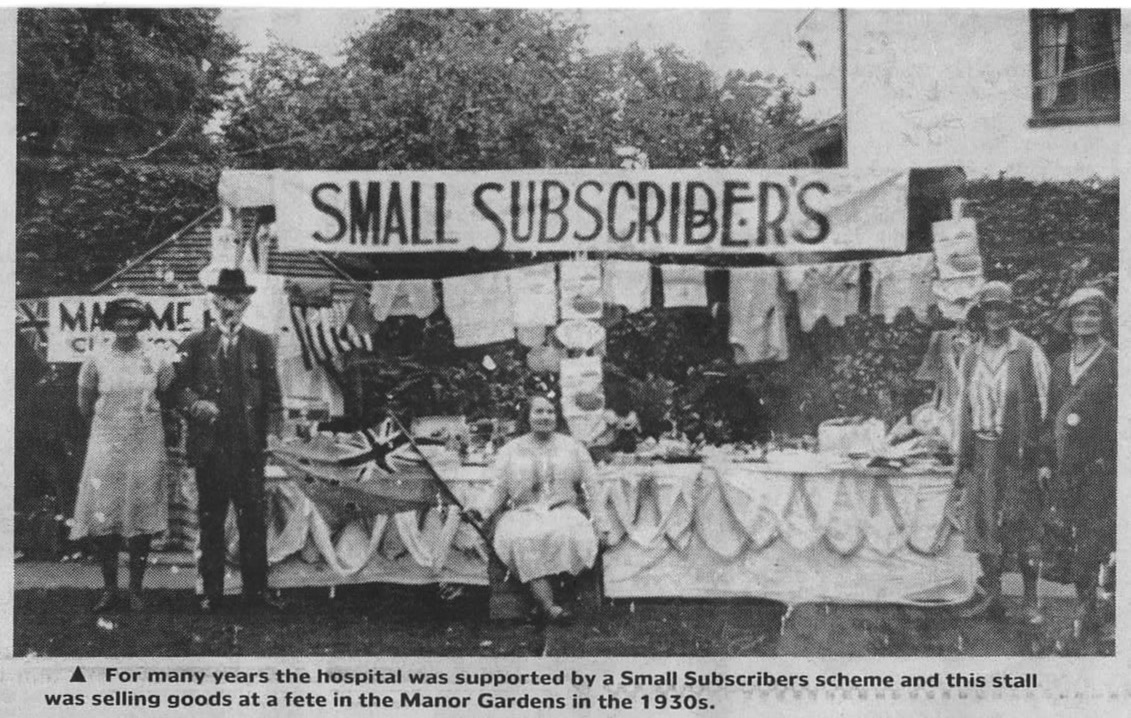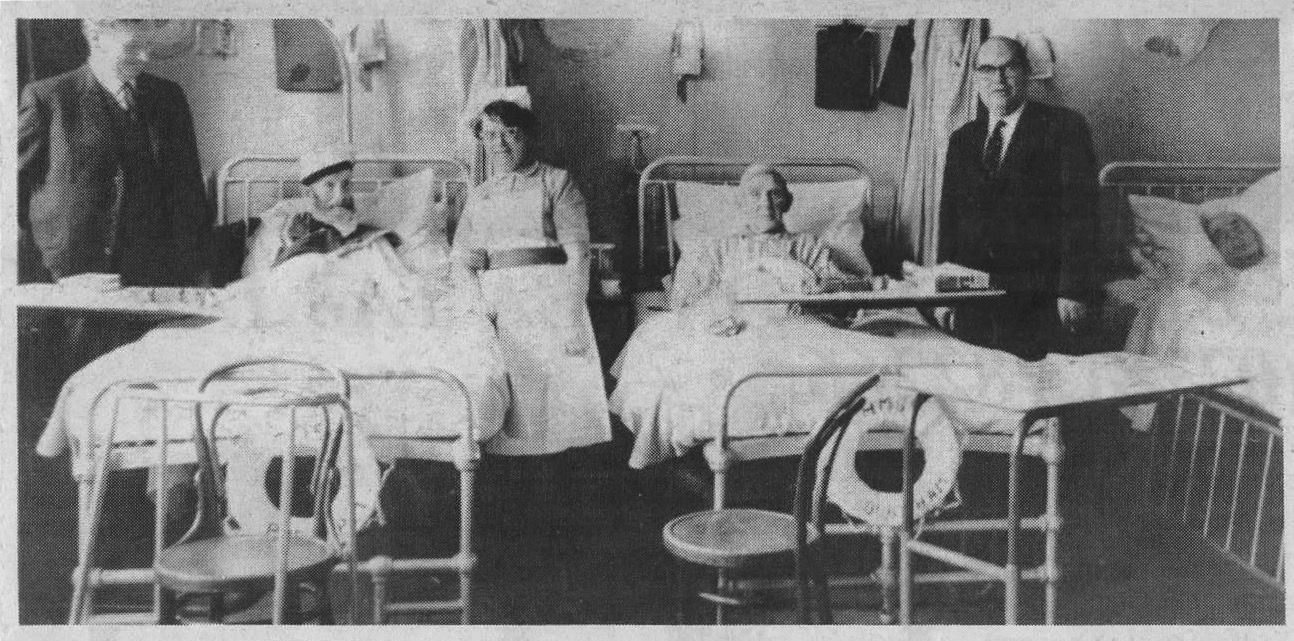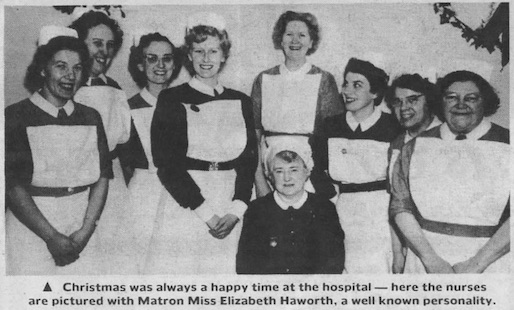For background information see War Memorial Hospital on the Heritage Trail.
Memories of the hospital staff (from Burnham & Highbridge Weekly News 1992, article by Ivor Punnett)
Dorothy Bird
Dorothy (known as ‘Birdie’) joined the hospital during WWII and worked there for 35 years, retiring with the rank of senior enrolled nurse.
“Rules were very strict then and all the nurses had to be in the home every night by ten o’clock sharp or they were locked out. When I started at the hospital we were paid a pound a week and received our money every month in a little wooden hut in the grounds from Mr Harold Makin, who was the secretary of the Small Subscribers Scheme. Under this scheme patients paid a small sum which entitled them to stay in the hospital and receive medical attention.”

“We worked from 8.30 in the morning to 8.30 at night, with three hours off during the day. If you wanted to go into town you had to ask permission from the matron and no extra time was allowed. The cook and housekeeper at that time was Miss Brown and she never bent the rules. Even if you were standing on the pavement outside the nurses home she would shut and lock the door sharp at ten and then you had to throw pebbles at a friend’s window to get in and would be on the mat before matron the next day. Rules were rules and we just accepted them in those days. When we were on night shift for instance, Miss Brown would chain up the Aga cooker so we could not do any cooking. But I don’t want to give the impression that she was an ogre, for in many ways she was very kind. I was very thin in those days and often she would give me a glass of milk from the tops of the bottles as she felt I needed building up.”
Visiting hours were strict in those days and never broken. Patients often helped nurses with making tea and cleaning. Because cures often took longer in those days patients and staff were able to strike up lasting relationships.
“Even today people still speak to me and remember the times when they were in the hospital, though I often can’t recall their faces. Once we had a premature baby born in the hospital. She weighed just over a pound and hardly anyone thought she would live. We had no specialised equipment then and she had to be fed every hour with a fountain pen dropper. But because of a lot of love and care she survived and her mother christened her Penny, as that was the smallest thing she could think of. Years later her mother stopped me in the street and Penny was a sturdy little girl, full of life and fun.”

Irene Richards
Irene started work in the 1930s as a trainee nurse on £16 a year, but came to Burnham later. “The next year we got £18 and the year after £20. Of course we had meals, uniform and accommodation provided but rules were strict. One breach and you were sacked because there was a long waiting list for nursing vacancies then. One thing I remember is that nurses years ago never used christian names, even when they were off duty. In fact I have worked with many nurses and never known their christian names. And it was unheard of to speak to a matron or doctor with anything but the greatest respect”
Joan Cook
Joan worked at the hospital for 25 years, looking after the outpatients department for 15 of those. “Everything was different in those days. We operated here three or four days a week and we had to make all of our own dressings and do steam sterilising. We were very proud of our work as a surgical unit and I remember the jokes about hospital food never worried us because we had a very good cook and the meals were excellent.”

